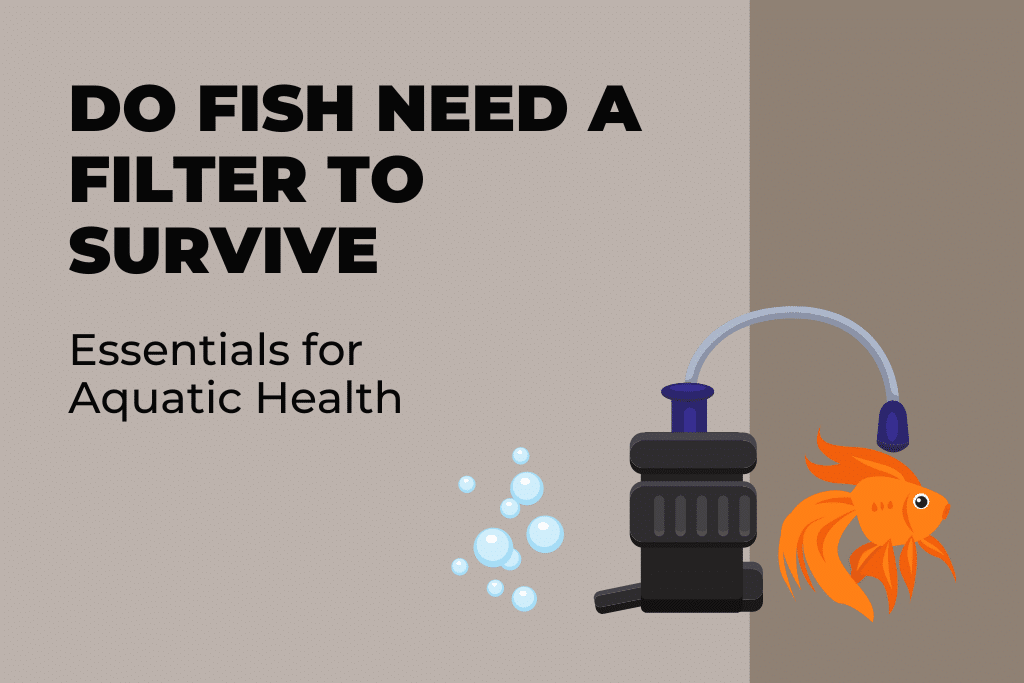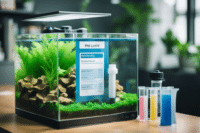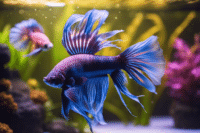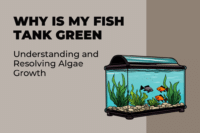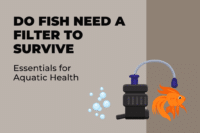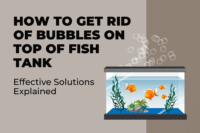Do fish need a filter to survive in an aquarium? This is a common question among new fish owners, and the answer may surprise you. Yes, most fish do need a filter to stay healthy and live longer. While some fish species like bettas and guppies can survive for a while in a tank without a filter, it’s not ideal for their long-term health.
Filters are crucial as they help maintain clean water by removing waste and toxins. Without a filter, harmful chemicals like ammonia can build up quickly, stressing the fish and reducing their lifespan. A filter also helps in oxygenating the water, which is vital for fish to breathe properly.
However, there are special cases where small, hardy fish can live in filterless aquariums if maintained correctly. This often involves frequent water changes and careful monitoring. Wouldn’t you agree that ensuring a clean and healthy environment for your fish matters just as much as feeding them?
Key Takeaways
- Most fish need a filter to stay healthy.
- Filters help remove waste and toxins from the water.
- Some fish can live without a filter but need frequent water changes.
Understanding Aquarium Filtration
To keep your fish healthy and your aquarium clean, you need to understand the essentials of water quality and the role of filters. Different filtration systems play a crucial part in maintaining a safe environment for fish.
Essentials of Water Quality
Water quality is super important for your fish. Good water quality means the water is free of harmful substances and has enough oxygen. Poor water quality can stress or even kill fish.
Fish produce ammonia as waste, which is toxic. Over time, ammonia breaks down into nitrite and then into nitrate. Both ammonia and nitrite are harmful to fish, while nitrate is less dangerous but still not ideal in high amounts. Your goal is to keep these levels as low as possible.
Regular testing helps you monitor water quality. Kits are available to test ammonia, nitrite, and nitrate levels. Aim for ammonia and nitrite levels at 0 ppm (parts per million) and keep nitrates below 20 ppm. These numbers help ensure that your fish live in a healthy environment.
Role of Filters in Sustaining Fish Life
Filters are critical in keeping the water clean and safe for fish. They help remove waste and harmful chemicals from the water. There are three main types of filtration: mechanical, biological, and chemical.
- Mechanical filtration removes particles like fish poop and uneaten food. This keeps the water clear.
- Biological filtration uses beneficial bacteria to convert harmful ammonia into nitrite and then into nitrate. This is vital for a safe tank.
- Chemical filtration uses substances like activated carbon to remove toxins and pollutants.
Without these filters, the water would quickly become toxic, making it hard for fish to survive.
Types of Filtration Systems
Choosing the right filtration system for your aquarium depends on your setup and the type of fish you have. Here are a few common types:
- Sponge filters: Great for small tanks or breeding setups. They provide good mechanical and biological filtration.
- Internal filters: These are submerged in the tank and are ideal for smaller aquariums. They combine mechanical, biological, and sometimes chemical filtration.
- Under gravel filters: These use the tank’s gravel as a filter medium and create a flow of water through it. They provide excellent biological filtration but require regular maintenance.
- Canister filters: Suitable for larger tanks. They offer all three types of filtration and are highly efficient but can be more complicated to set up.
Fish Species and Their Specific Needs
Certain fish can live without a filter, but understanding their specific needs is vital. This section will help you navigate small and bowl habitats, filtration needs for different fish, and maintaining a healthy aquarium.
Considerations for Small and Bowl Habitats
Betta fish, guppies, and zebra danios are hardy fish that can live in small tanks or bowls as tiny as 5 gallons. However, even in small spaces, regular water changes are essential. Bettas have a labyrinth organ that helps them breathe air directly, making them suitable for bowls.
A substrate like gravel or sand can help with natural filtration. Also, live plants such as hornwort and java fern can improve water quality by absorbing toxins. Ensure stable temperature and clean the bowl regularly to maintain healthy water conditions.
Fish Varieties and Filtration
Different fish have varied filtration needs. Betta fish and dwarf pufferfish do well in tanks without mechanical filters but still need maintained water quality. For example, a well-established tank with lots of plants can naturally filter the water.
Fish like guppies, zebra danios, and white cloud mountain minnows can also live without filters if the tank is not crowded. Sparkling gourami and mosquito rasboras thrive in heavily planted tanks which provide natural filtration and mimic their native rice paddies.
Caring for a Healthy Aquarium Ecosystem
Even without a filter, maintaining a healthy ecosystem is crucial. Regular maintenance, such as weekly water changes of 25%, helps to balance the nitrogen cycle and keeps water parameters stable.
Natural filtration methods such as live plants are essential. Java fern and hornwort are excellent choices as they absorb nitrates and provide hiding spots for fish. Keep a mix of fish that cohabit well to prevent stress.
Using a stable substrate base aids in beneficial bacteria growth. Always monitor water quality and avoid overfeeding. Their natural habitat should inspire your tank setup to ensure happy, healthy fish.
Conclusion
Many fish benefit from a filter because it keeps the water clean. Filters remove harmful chemicals and debris from the tank. This makes the tank a healthier place for your fish to live and thrive.
Some hardy fish species, like Endler’s Livebearers and Ember Tetras, can live without a filter. However, these fish still require regular water changes and good tank maintenance.
Why are filters important?
- Biological Filtration: Breaks down toxic ammonia from fish waste, making the water safer.
- Mechanical Filtration: Removes debris like uneaten food.
- Chemical Filtration: Clears harmful chemicals and toxins.
Think of a filter as a helper that keeps your fish’s home clean and safe.
While it’s possible to keep fish without a filter, it’s more work for you. You’ll need to change the water more often and monitor it closely.
So, if you want a simpler way to maintain your aquarium, a filter is your best friend. It ensures your fish stay healthy and happy with less effort on your part.
